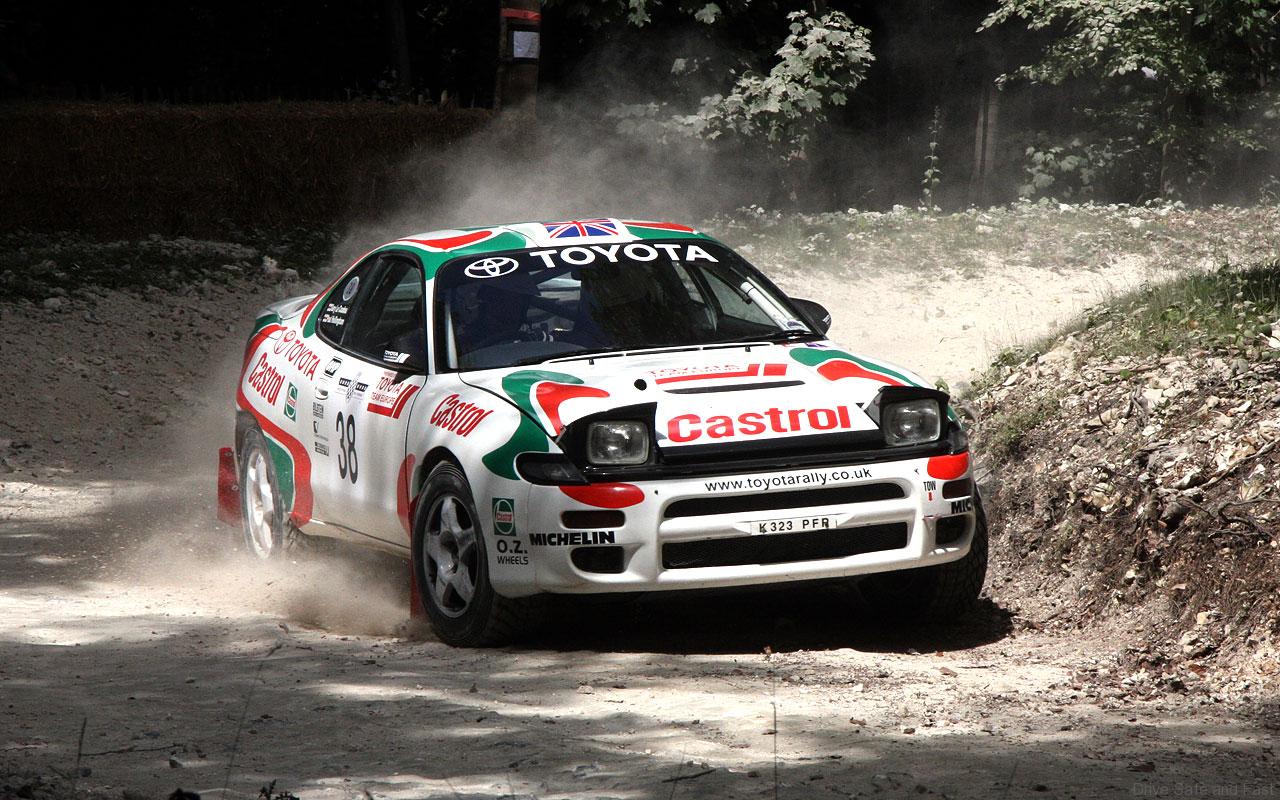Toyota has a long and successful history of competing in the WRC, with four championship titles and three drivers for the brand. Already on January 19th at the Monte Carlo Rally team Gazoo Racing Toyota WRC will have a chance to add to it another chapter.
Toyota returns to the World Rally Championship after a gap of 17 years. This year the brand unveiled the full lineup and the new Yaris WRC, which will compete for the title in 2017. Behind the wheel peruse Jari-Matti Latvala and Juho Hänninen and will lead a team of 4 times world champion Tommi Mäkinen.
Toyota’s racing history began back in the 50s of the participation model Toyopet Crown Deluxe in the event Round Australia Trial start in 1957. The first international competition took place a decade later, the South African driver Jan Hettema was invited to participate in the Rally Monte Carlo in 1968 behind the wheel of a specially prepared in Japan, Toyota Corona 1600 GT5 coupe. All went well until the windshield shattered him a stone thrown from the wheels of the car before it Hettema and had to retreat – driving in difficult weather conditions with no windshield was impossible.
A year later Hettema took part in the Monte Carlo Rally the same car, this time under a private team sponsored by Derek McFarlane, who rode as a substitute Hetta. Unfortunately, this time CORONA hit problems with the electrics, but it dealt a blow to confidence in Hetta for the car. Corona Rally started in South Africa, winning the national title.
Celica 2000GT
The debate over the choice of Corolla continued also in 1976. RA20 Celica 2000GT coupe got a new 2.0-liter engine with four valves per cylinder, which helped Andersson gain excellent second place in the debut of this model in Portugal. TTE exhibited to rally both Celica and Corolla, making the choice depending on the nature of the event, however, the new Corolla Celica gained over a distinct advantage thanks to a better level of performance.
In 1977 Corolla competed only occasionally. Season ended in second place in the Rally RAC, which won Hannu Mikkola – now Toyota driver, not a Fiat. This event was also the last in which Toyota Celica issued the first generation.
Celica 2nd generation
New legislation introduced in the season in 1978, prohibited modifications serial engines from two to four valves per cylinder, so TTE worked intensively on preparing for starts Celiki second generation RA40. This model was first introduced in mid-year in Group 2 with engine two valves per cylinder, but homologowaniu RA40 engine with four valves per cylinder and fuel injection, the RAC Rally 1978 went into action version with better performance.
Celica second generation had unfortunately luck to European rallies. After the lifting of the ban on participation in rallies vehicles with all-wheel drive, a lot of teams WRC decided to go this very path. Toyota was not prepared to do, so the team decided to focus on the territory, where the Celica rear-wheel drive had a better chance – on Africa.
Africa has opened new possibilities for Toyota. Kenyan Safari Rally already had an established reputation, and in 1978 was fine for the FIA WRC calendar, Rally Ivory Coast. At this event in the 1979 season, Toyota has prepared a new Celik RA45 Liftback, the better aerodynamics have an advantage on the fast sections. They offered two cars, equipped with durable engines with two valves per cylinder. Andersson reached the finish line in fifth position, while the head of the second Celik Jean-Luc Thérier was forced to withdraw due to problems with overheating.
Despite the current variable of luck, in the late 70s Toyota not to lose faith. The most successful WRC were still in front of her.









